Finally published my first article on Lunyr! Quick update on status of Private Alpha
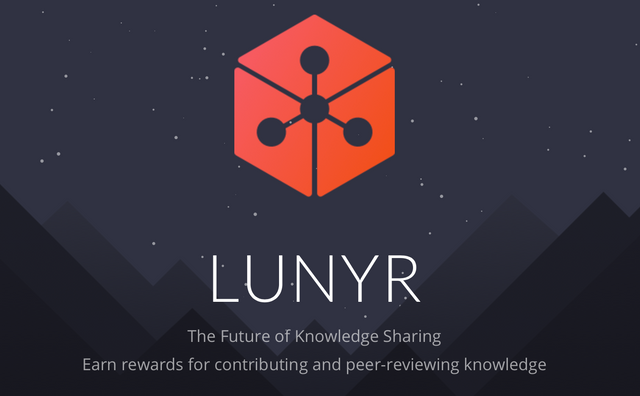
My article is completely and deliberately terrible, but I did sneak in a reference to Pocket. Here's a screenshot from the Lunyr Private Alpha:
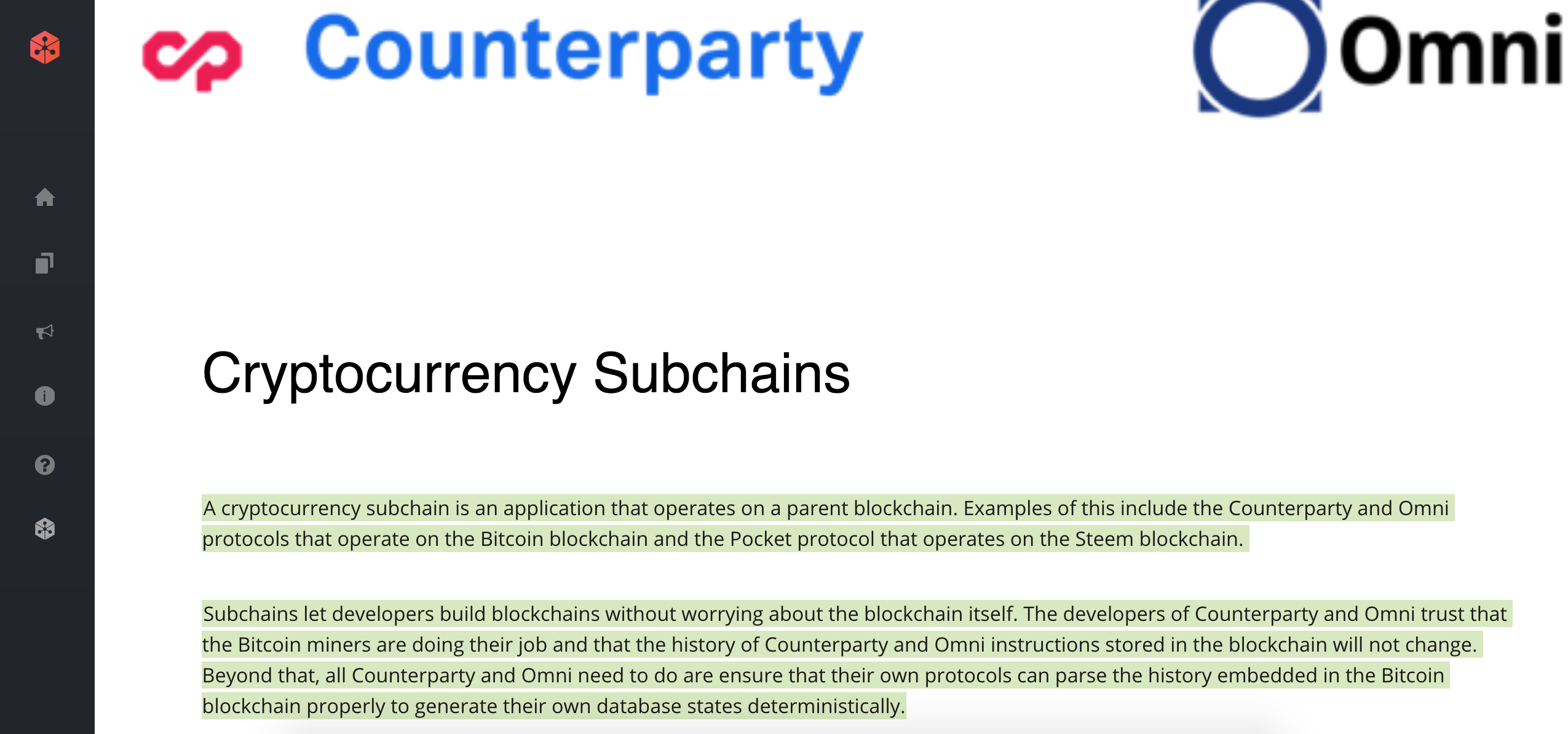
The alpha platform is quite rough, and it's taken me all afternoon to try to get any transaction at all posted. Turns out the first one that I could get to go through was this deeply-incomplete article that's mostly copied from my MIST Subchain post.
But it's kind of exciting! The article is somehow associated with an actual Ethereum transaction, which means that somehow what happens one the website is successfully integrated with some Ethereum smart contract. Unfortunately, I think the smart contracts are all still closed-source, so I don't really know what they do.
However, I've been unable to review any articles.
I'll quickly summarize the review process as currently implemented. I've tried many times over the past couple months to get a review posted on the site, but various things have prevented me from doing so. Nonetheless, here's how it works:
First, you give your "overall impression" score for the article:
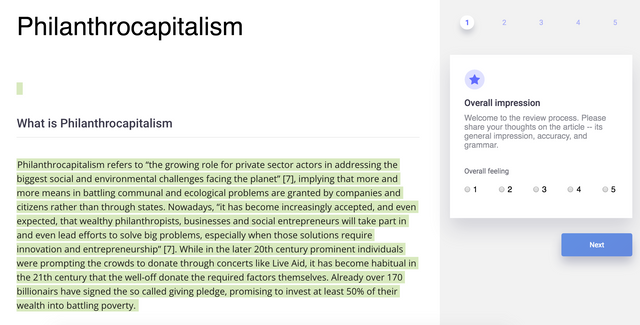
Then, you answer these questions:
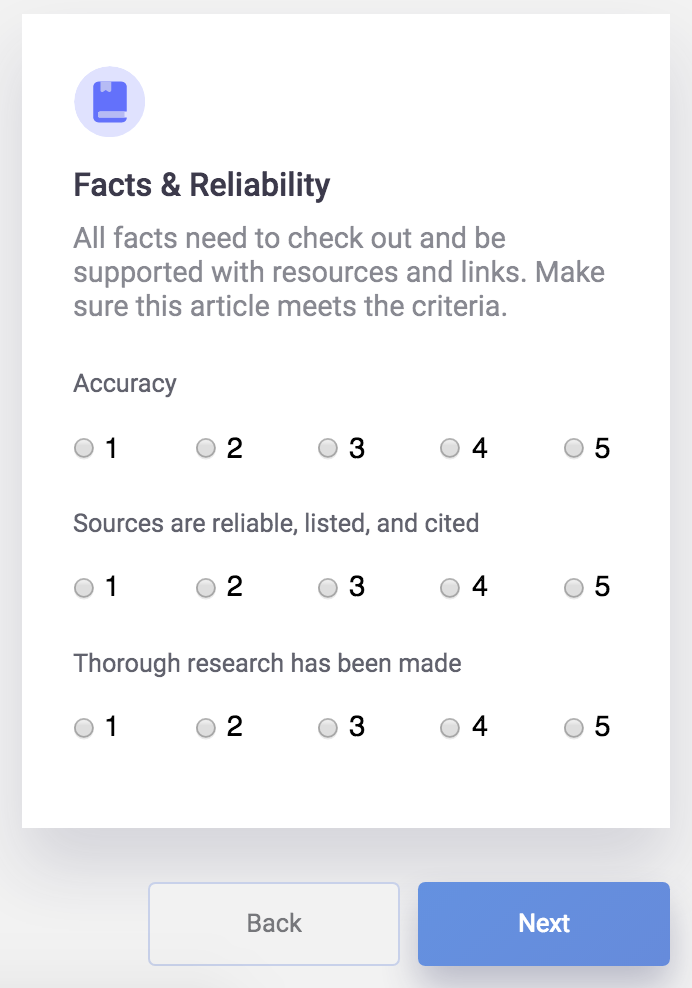
More questions:
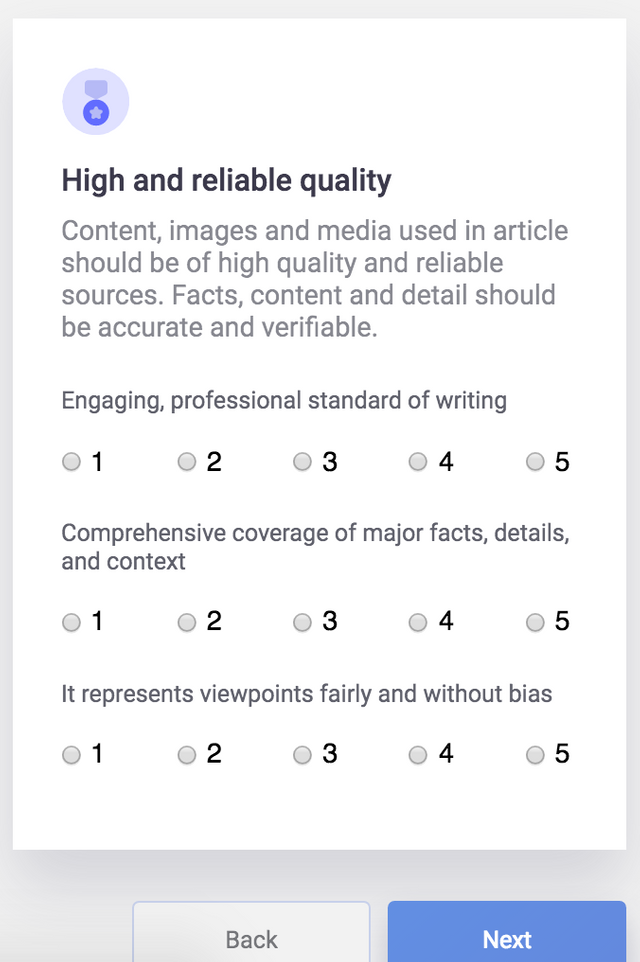
You give a quick text review (I didn't like this article much, as you can tell):
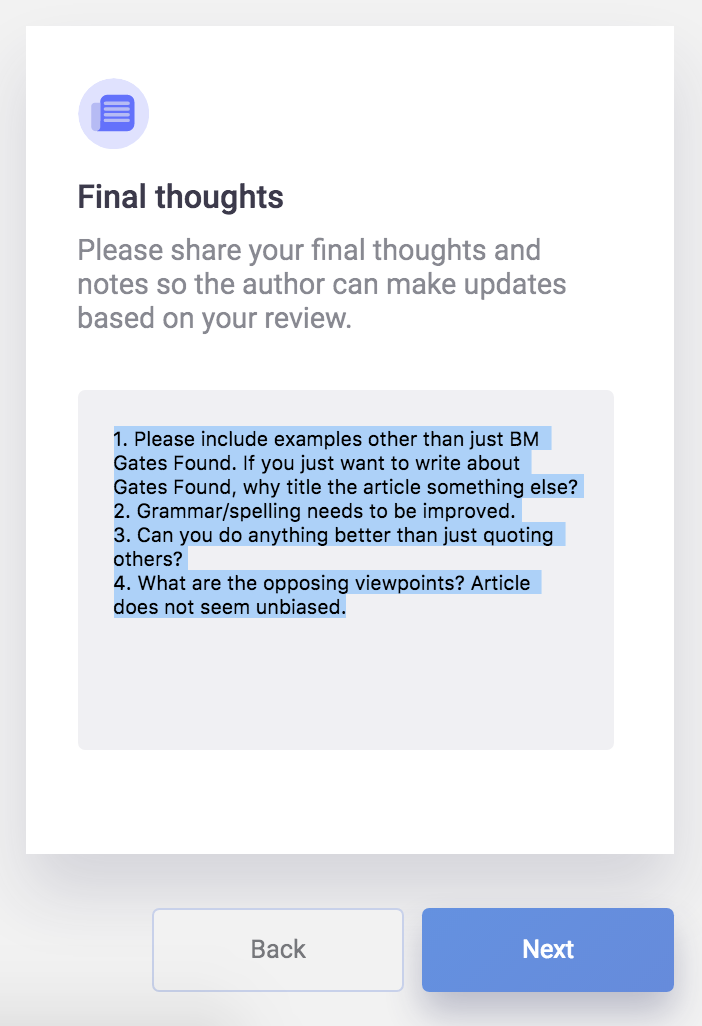
You give it an overall score from 1-5; I believe 3 and above means "I vote to publish." I gave this article a 2. Then you choose how much you want to pay for Ethereum gas (makes me miss Steem's free transactions so much. Paying for gas sucks!):
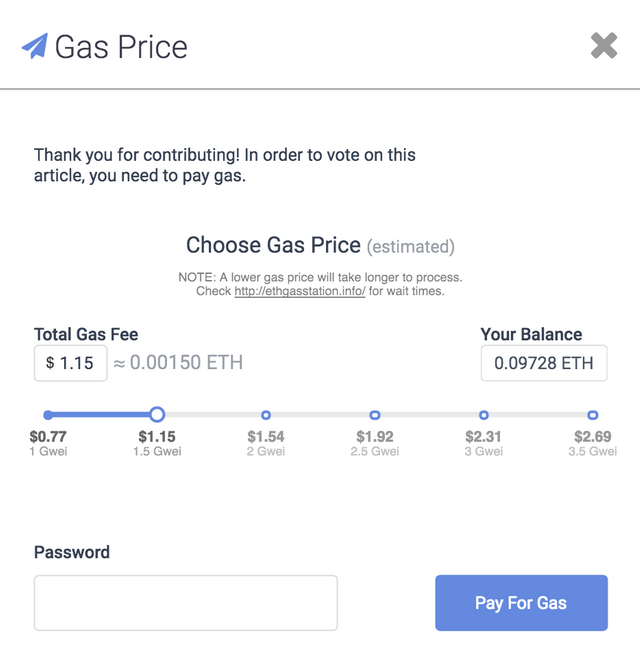
Then, since it's just an Alpha release, you get an error message when something goes wrong with submitting the transaction to Ethereum:
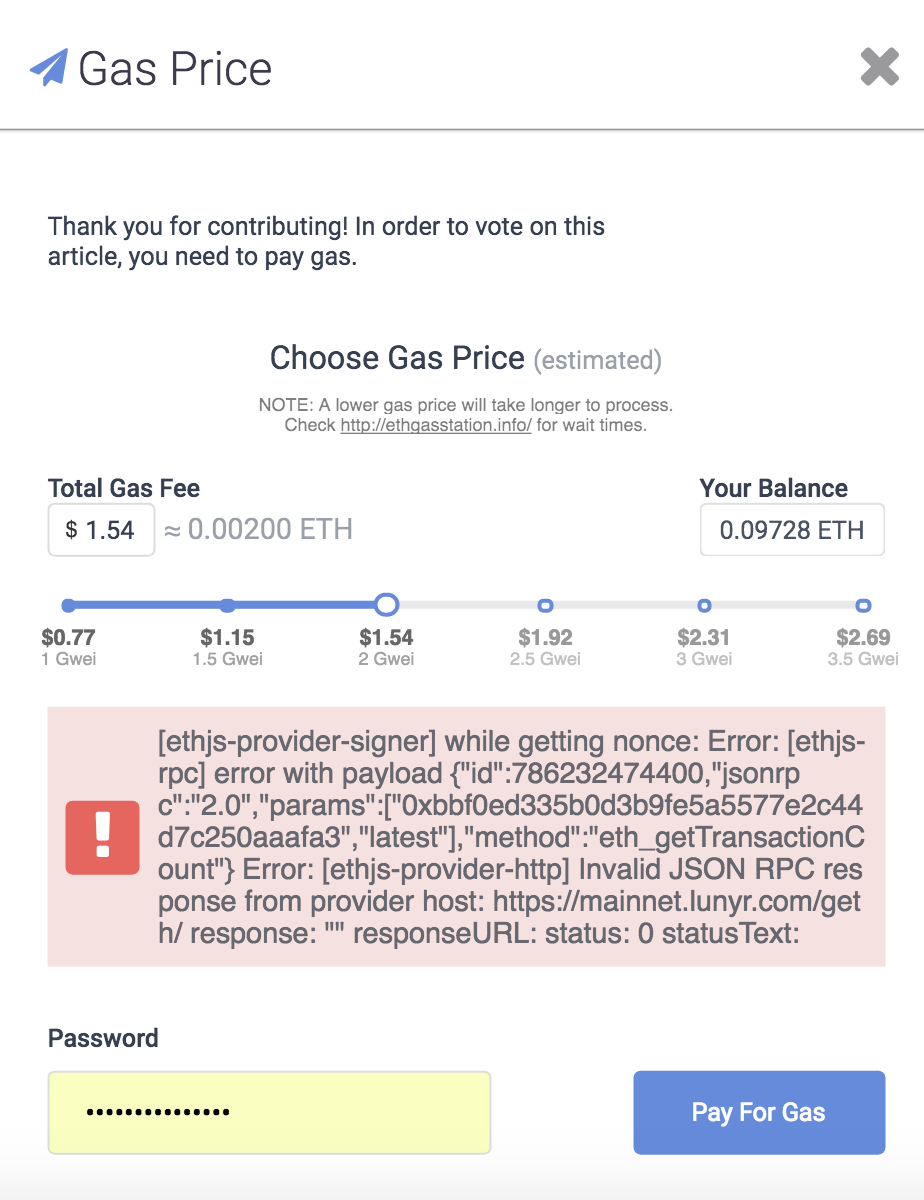
Pretty rusty, but it's progressing forward! Just being able to publish an article feels like a big win to me. Right now, LUN has a market cap under $30M and it's one of a few Ethereum smart-contract projects that's actually doing something. I'm sneakily considering buying some more just in case the current crypto bull run continues. Supposedly they're launching an open Beta in Q1 2018; we'll see if they end up getting things polished up in time for that to be a good idea.
Disclaimer: I am long LUN and a participant in the Private Alpha; you should therefore not consider this review unbiased.
Wow, so why exactly would I want use lunyr? ty
If you like writing, they pay you to write. If you like reading, they have information for you. If you have expertise, they pay you to review others' articles.
Or so goes the plan. :)
decentralized wikipedia ?
What about side chains like rsk.co
As I said, my Lunyr article isn't meant to be publication-worthy; it's just to test the alpha. I fully expect it to be rejected.
What's rsk.co?
bitcoin version of ethereum
https://bravenewcoin.com/news/ethereum-style-smart-contracts-are-coming-to-bitcoin-in-june/
https://www.coindesk.com/bitcoin-startup-rsk-launch-smart-contracts-sidechain-2017/
https://bitcoinmagazine.com/articles/the-next-big-thing-rsk-smart-contract-sidechain-launches-developer-release-integrated-in-jaxx-wallet-1478720778/
Sounds like a huge step backward, to be honest. It will inherit the worst aspects of both: bitcoin's massive transaction fees and ludicrously long confirmation times and ethereum's painful congestion issues. And, they won't actually be able to lock Bitcoin in a smart contract.
But maybe I don't understand it as well as I think I do.
Lerner explains that RSK is a smart contract platform that adds a Turing Complete Virtual Machine — a “world computer” — to Bitcoin. Additionally, RSK achieves 100-300 transactions per second on chain and confirms most payments in less than 20 seconds, while leveraging Bitcoin's proof of work security.
RSK is a Bitcoin Sidechain — a separate blockchain that carries a separate token but is able to exchange tokens back and forth with the main Bitcoin blockchain. Users can move bitcoin to the RSK chain, make use of the converted bitcoin, and then eventually move their tokens back, as bitcoin, to the main blockchain.
To put bitcoin back into the main Bitcoin blockchain, a RSK transaction fee has to be paid. There is no concept of mining for coin creation, since all coins come from the Bitcoin blockchain, but there is the all-important concept of merged mining: miners can run both blockchains and receive fees for validating bitcoin transactions as well as for running RSK contracts. It is expected that merged mining should provide sufficient incentives to miners.
And here how they will peg/back rsk bitcoin aka smart bitcoins with real bitcoin.
I got it from their site:
The 2-Way peg is often said to be a method to transfer BTC into SBTC and vice-versa. In practice, when BTC are exchanged for SBTC, no currency is “transferred” between blockchains. There is no single transaction that does the job. This is because Bitcoin cannot verify the authenticity of balances on another blockchain. When a user intends to convert BTC to SBTC, some BTC are locked in Bitcoin and the same amount of SBTC is unlocked in RSK. When SBTC needs to be converted back into BTC, the SBTC get locked again in RSK and the same amount of BTC are unlocked in the Bitcoin blockchain. A security protocol ensures that the same Bitcoins cannot be unlocked on both blockchains at the same time.
How it works:
When a Bitcoin user wants to use the 2-Way Peg, he sends a transaction to a multisig wallet whose funds are secured by the Federation. The same public key associated with the source bitcoins in this transaction is used on the RSK chain to store the Smart Bitcoins. This means that the private key that controlled the Bitcoins in the Bitcoin blockchain can be used to control an account on the RSK chain. Although both public and private keys are similar, each blockchain encodes the address in a different format. This means that the addresses on both blockchains are different.
Ahhh, I'm beginning to see. Clever. I'll have to read closer to see how they do 20s confirmations; maybe a Dash-type supernode thing?
The concept of sidechain (as distinct from subchains like XCP and Omni) is something I hadn't thought about very much, but it's cool. Thanks for pointing this out to me!
The big problem with side chains right now is it kinda somewhat centralized aka remember me stating the federation?
The RSK platform will be launched with a Federation of well-known and respected community members (blockchain companies with high security standards). Each member is identified by a public key for the block checkpoint signature scheme. The Federation is able to add or remove members using an on-chain voting system. The conditions to become a Federation member (known as Federation Member Requirements or FMR) establish basic security policies and legal requirements that all members must meet.
The Federation will provide several services to the network. Some of them will be available at launch and other will be added later. Each member can choose to provide any of the following services:
Two-way peg with Bitcoin
Checkpointing services
However when Core( i think they will Blockstream is supporting side chains)adds special opcodes or extensibility to validate SPV proofs as a hard-fork, or to manage a drivechain, the Federation role as STTPs in the 2-Way peg will no longer be necessary. Until that happens, we expect the Federation and the sidechain validation to coexist.
And the for the checkpoints
By default, clients stop using federated checkpoints when if RSK hashing power is over 66% of the maximum BTC hashing difficulty observed in the best chain and the fees paid in a block are higher or equal to the average reward of a Bitcoin block. However, any user can re-configure this local policy.
So pretty much for rsk to be decentralized it must have 70% of bitcoin hashpower(luckily 90% has agreed to merge mine it so that part is out of the way) and core adding the protocol for sidechains then the federation will be deactivated
No its on a sidechain. A sidechain is like its own version of a chain but connected to bitcoin. And blockstream has spent money on making a decentralized 2 way pegged system. It a token backed by bitcoin free from the bitcoin main chain.
But with the Lumino Transaction Compression Protocol (LTCP), RSK will be able to process up to 2000 tps on chain! And once the Lumino Network is deployed over RSK, it will allow up to 20k tps off-chain taking Bitcoin to Visa processing levels.
Thank you for the review. What do you think makes the LUN token unique and which problem does it solve?
At the time of the crowdsale 9 months ago, I hadn't seen another project trying to do a Wikipedia-type thing. So back then I thought that made LUN unique. Now I suspect they've got competition.
Is there a problem they're solving? That's less clear to me -- I suppose that Wikipedia could be said to have a solvency problem. They can't operate without continuous fundraising, which is unfortunate. I suppose Lunyr tries to fix that problem.
Do I think it's a good idea to tokenize Wikipedia? Probably not -- but time will tell.